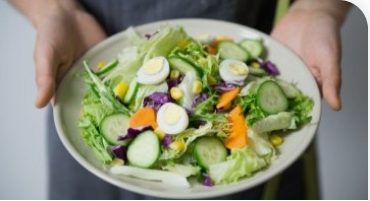Learn how to find reliable, scientific information about food and nutrition and identify the truth behind food headlines.
Due to conflicting messages from the media, it’s becoming harder to know what to believe when it comes to following a healthy diet and lifestyle. On this course, you’ll compare how nutrition and health topics are handled by the media and science. You’ll be encouraged to think critically about the information behind media headlines and come to your own conclusions about what’s good for you.
You’ll explore the psychology of why we’re easily influenced by headlines and learn about different types of biases, like confirmatory and availability bias. You’ll also learn how to find reliable information online and identify unreliable health studies.
The course focuses on:
- How to analyse a headline by understanding the biases that we, as readers, bring to our understanding of food and nutrition stories.
- The journalist’s perspective, the agenda behind the story and the hooks used to make readers interested.
- How to find out about the original science the story is based on and understand how to interpret the results of the research.
- The regulations surrounding food and nutrition and where to find reliable sources of information.
- The processes of publishing scientific articles
- Tools that help identify unreliable sources of information.
Who should join the course
This course is designed for anyone who is losing trust in media headlines about how what we eat affects our health and who wants to get to the truth.
Timeline
The course will be available all year round from 2022 onwards.
Learning objectives and outcomes
- Interpret why the media is so interested in reporting about food and nutrition, why the ‘advice’ changes so rapidly and the part we play in that, as readers.
- Explore the hierarchy of scientific evidence and judge for yourself whether you believe an example headline.
- Explore the biases you bring to what you read and gain a perspective into journalists’ agendas which influence how they present scientific evidence.
- Identify how to find the original research, how to interpret scientific terms and make sense of statistics.
- Discuss where to obtain the information you can trust about food and nutrition and use tools that help identify unreliable studies.
How to join the course
This course is available on FutureLearn: https://www.futurelearn.com/courses/food-and-nutrition
Project Leadership: Dr Jing Guo, University of Reading
Contact details: sarah.guo@reading.ac.uk
Participating organisations:





